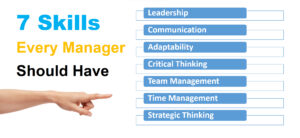In today’s transformative Artificial Intelligence (AI) ‘s landscape, understanding the evolving job market is paramount for sustaining careers. As AI increasingly automates routine tasks like administrative duties and manual labor, traditional job roles are undergoing significant changes. However, with this transformation comes a wave of exciting new opportunities, particularly in burgeoning fields such as AI ethics and data privacy. To thrive in this dynamic environment, individuals must embrace lifelong learning and prioritize upskilling to remain competitive in an AI-driven world.
In this comprehensive exploration, we delve into the profound implications of AI on the job market, shedding light on both the jobs that may become obsolete and the emerging opportunities that will shape the future of work.
Jobs at Risk:
As AI continues to advance, roles centered around repetitive tasks are at risk of obsolescence. Routine administrative tasks, once performed by humans, are increasingly being automated by intelligent algorithms and chatbots. Similarly, industries reliant on manual labor and repetitive manufacturing processes are ripe for disruption by AI and robotics. Jobs in assembly lines, warehouse operations, and manual labor-intensive tasks may diminish as AI-driven automation becomes more prevalent, leading to increased efficiency and cost-effectiveness for businesses. Furthermore, the retail and customer service sectors are experiencing significant shifts, with AI-powered chatbots and virtual assistants reshaping customer interactions and purchasing processes.
Emerging Opportunities:
Conversely, the rise of AI presents a plethora of emerging opportunities across various industries. Roles such as AI ethics specialists, data privacy officers, AI strategists, and AI trainers are becoming increasingly vital in ensuring responsible AI deployment and driving innovation. AI ethics specialists play a crucial role in ensuring that AI systems are developed and deployed responsibly, addressing concerns related to bias, privacy, and transparency. Data privacy officers are responsible for developing and implementing policies and procedures to protect individuals’ personal information, ensuring compliance with regulations such as GDPR and CCPA. AI strategists analyze market trends and identify opportunities for AI implementation to drive business growth and innovation. AI trainers educate others on AI technologies and best practices, empowering individuals and organizations to leverage AI effectively in their workflows.
Upskilling and Adapting:
To thrive in the Artificial Intelligence (AI)-driven job market, individuals must prioritize upskilling and adapting to the evolving demands of the industry. Effective upskilling involves honing skills in critical areas such as data analysis, machine learning, programming, ethical AI, cybersecurity, and communication. By acquiring proficiency in these key domains, individuals can enhance their employability, future-proof their careers, and contribute to driving positive change in the AI-driven economy. In this rapidly evolving landscape, embracing a mindset of continuous learning and adaptability is not just advantageous—it’s essential for thriving in the transformative era of Artificial Intelligence (AI).
Related
AI in HR: Transforming HR Practices for Tomorrow’s Workforce
Visit Online HR Solution


Pingback: Navigating Bangladesh Job Market in 2025: Trends, Challenges, and Opportunities